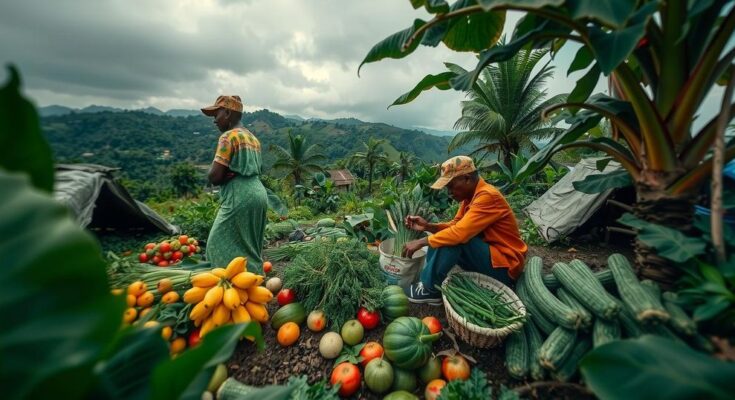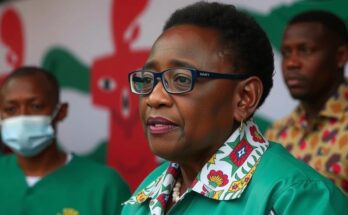FAO Deputy Director-General Beth Bechdol met with Prime Minister Judith Suminwa Tuluka in the DRC to discuss food security and resilience amidst ongoing food insecurity affecting 25 million people. The talks highlighted FAO’s strategies to support agricultural livelihoods and reduce reliance on humanitarian aid, particularly in IDP camps. Bechdol’s visit included an emphasis on collaboration with national authorities and international partners to tackle urgent food needs in the country.
High-level discussions aimed at addressing food security and building resilience took place recently in the Democratic Republic of the Congo (DRC). FAO’s Deputy Director-General, Beth Bechdol, engaged with Prime Minister Judith Suminwa Tuluka to explore collaboration between FAO and national authorities. This meeting forms a part of a six-day high-level FAO delegation visit that emphasizes the significance of partnerships and FAO’s strategies to tackle urgent food needs in the country.
During the meeting, Prime Minister Suminwa Tuluka, the first woman to serve in this capacity in the DRC, expressed gratitude for FAO’s unwavering support and commitment to joint objectives. Beth Bechdol provided insights into FAO’s ongoing initiatives designed to combat food insecurity and establish resilience among vulnerable populations, many of whom are internally displaced due to ongoing conflicts.
With approximately 25 million individuals, nearly a quarter of the DRC’s population, facing hunger, the FAO highlighted urgent food security concerns. Projections indicate that by December 2024, up to 25.6 million people may experience acute food insecurity, with particular urgency in regions such as North and South Kivu, where many IDP sites are classified as facing Emergency conditions.
DDG Bechdol reiterated FAO’s commitment to a comprehensive humanitarian response, advocating for increased livelihood activities in IDP sites to complement life-saving food assistance. Investment in agricultural livelihoods would decrease dependency on emergency aid and foster long-term resilience. Bechdol visited the Rusayo 2 IDP Camp in Goma, where over 30,000 displaced individuals reside, and highlighted the FAO’s projects including provision of micro-gardening kits and livestock support.
Given that a significant portion of the DRC’s population relies on agriculture, this sector is critical. FAO’s resilience initiatives are executed in collaboration with numerous UN organizations and international partners, including Germany, Norway, and Sweden, focusing on rehabilitating the livelihoods of those affected by regional conflicts. The mission reinforces FAO’s dedication to addressing the underlying causes of food insecurity through proactive interventions and global cooperation.
The Democratic Republic of the Congo faces significant challenges related to food security and resilience due to ongoing conflicts and their impact on agricultural livelihoods. Approximately 25 million people, almost 25% of the population, experience hunger as a result of protracted crises. The Food and Agriculture Organization of the United Nations (FAO) plays a crucial role in coordinating efforts to provide humanitarian assistance, promote sustainable agricultural practices, and enhance resilience among vulnerable populations, particularly in areas with high concentrations of internally displaced persons (IDPs).
The recent high-level talks in the Democratic Republic of the Congo, led by FAO Deputy Director-General Beth Bechdol and Prime Minister Judith Suminwa Tuluka, underscore a vital commitment to addressing food insecurity and enhancing resilience among vulnerable populations. With a large part of the population facing hunger, the emphasis on agricultural livelihood programs aims to reduce dependency on humanitarian aid. Ultimately, collaborative efforts involving various international partners are essential for rebuilding the livelihoods of those affected by conflict and restoring food security in the region.
Original Source: www.fao.org




